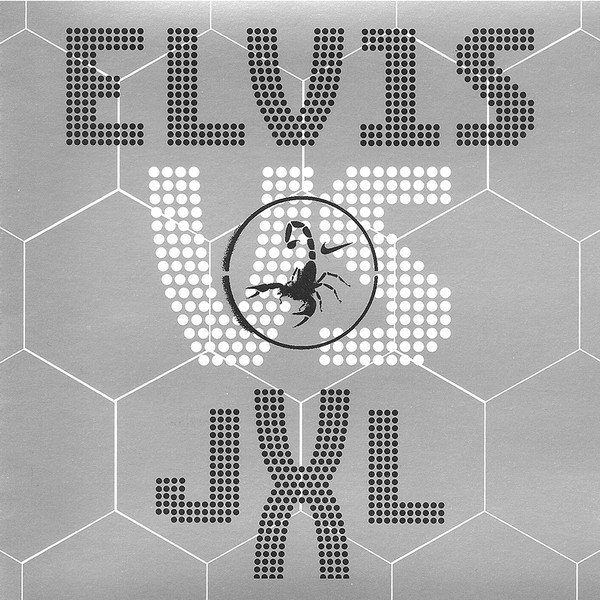
When Elvis Presley’s final single, “Way Down” (released in June 1977, two months prior to his death), hit the top of the British charts shorty after Elvis left the building for good, he tied the Beatles for having the most number-one songs in U.K. history: 17. They remained deadlocked until 2002, when the King reclaimed the throne.
The following story has never been published and explains the mystery behind how Elvis achieved this victory over the Beatles—25 years after he died.
Mark Thomashow was, for almost a quarter century, Nike’s senior global director of business affairs for brand marketing. During the three-plus decades he served at the Swoosh, he was privy to a host of iconic moments at the intersection of sports and pop culture. (Ever wonder who came up with the idea of putting custom caps on our sports champions? Thomashow did that first with the University of Michigan men’s NCAA champs back in 1989, and the one-off became a merchandising and marketing moment for the ages.)
Thomashow is a big part of why Elvis has more U.K. chart-toppers than the Beatles. Remember, kids, all you need isn’t love—it’s Nike. But we’ll let Thomashow tell the story.
Thomashow: Easily the best example of a piece of music and an ad campaign mutually benefiting each other was Nike’s Secret Tournament ad for the 2002 World Cup. Nike’s use of a remixed version of Elvis’ “A Little Less Conversation” greatly impacted record sales, shoes sales and the U.K.’s pop-chart history.
The premise of the ad was that the world’s greatest footballers would be participating in a secret three-on-three tournament played in steel cages aboard a ship out at sea. The global media spend on the campaign was to be Nike’s largest ever to that date. The campaign was conceived by the Amsterdam office team of Wieden + Kennedy (Nike’s longtime ad agency): John Boiler and Glenn Cole, who produced an amazing string of great football ads for Nike. (After leaving W+K, they went on to establish the successful 72andSunny ad agency.)
The guys were trying to determine what song would produce the best emotional connection for the ad. While contemplating this weighty issue, they took in Ocean’s 11 at an Amsterdam theater. In one scene, one of Elvis’ lesser-known tracks, “A Little Less Conversation,” played. The song was originally featured om the soundtrack to Elvis’ 1968 film Live A Little, Love A Little. It probably didn’t get a lot of airtime between 1968 and the 2001 release of Ocean’s 11. I suspect it didn’t get a lot of airtime after that. That all changed when the guys decided it was the track they wanted to use in the ad.
My task was to secure the rights to use the song in the ad campaign. The original asking price between the Elvis Presley Estate, the record label (BMG) and the music publisher (Williamson Music Company) was $1.5 million. The gap between that number and the amount we had in the budget was a zero and some loose change. It’d been my experience that a chasm that wide between asking price and amount offered could not be overcome—absent some extraordinary insights on the rights holder’s part.
The insight here was provided by Ad Bradley, a young man in BMG’s London office. BMG’s RCA label was set to release the ELV1S: 30 #1 Hits compilation in September 2002. Nike wanted to feature the song in an ad campaign that was debuting in March 2002. By far the heaviest media weight for the campaign would be in Europe. No doubt, Elvis’ music was a huge presence throughout the world, but it’s safe to assume that the song appearing in a Nike ad with the world’s greatest footballers would expose another generation (especially European kids) to it.
Bradley asked who would be featured in the ad. The list was an incredible who’s who of the world’s best footballers at the time: Thierry Henry, Francesco Totti, Nakata, Patrick Viera, Ruud Van Nistleroy, Paul Scholes, Luis Enrique, Edgar Davids, Luis Figo, Roberto Carlos, Brazilian superstars Ronaldo and Ronaldinho, Denilson, Fabio Cannavaro, Tomas Rosicky, Rio Ferdinand and others. The referee was (retired Manchester United and French national legend) Eric Cantona.
Cantona gave an inspired performance. He wasn’t Nike’s first choice, however. We wanted famed referee Pierluigi Collina, but you can’t always get what you want. However, we learned that if we tried (hard) sometimes, we often got what we needed.
Armed with the information about the ad buy (including a small U.S. ad buy on Spanish-language TV) and who’d be appearing in the ad, Bradley took on the task of selling the benefits to his bosses at BMG, the Presley Estate and Williamson. He came back with a number. It was $200,000. I informed him that he had doubled my budget. Given the fact that our budget was absurdly low for any Elvis song, I advised Nike to take the deal. As we’ll see, had the rights holders given us the song for nothing (a number considerably closer to the actual fee paid than the amount they asked for), they’d have still gotten a bargain!
The next order of business was that Nike wanted a remix of the song to be recorded by Dutch dance music DJ Tom Holkenborg. This seemed like a reasonable request except for two things: 1) The Elvis Estate had never allowed one of his songs to be remixed; and 2) Tom was known professionally as Junkie XL. Once again, Bradley provided the solution. He anticipated that the Presley Estate would object to the “Junkie” part of Junkie XL. He suggested Tom be called JXL for this project. He also convinced the Estate that Nike wouldn’t use the song absent a remix.
We had a deal.
The campaign was incredibly well-received and was one of Nike’s most successful ads ever. The JXL remix didn’t do too badly, either, when released as a single. The CD cover had a hexagonal football-like background. The copy was ELVIS VS JXL. It included a scorpion logo complete with Nike Swoosh that had been used as a logo in the ad campaign. The single sold more than 1.7 million copies and became a number-one hit in 20 countries, including the United States, where the ad was only seen on Spanish-language TV. The fact that the song became a number-one hit in the U.K. was very significant. As stated in a June 17, 2002, Telegraph article by Matt Born:
Elvis Presley’s reputation as the king of rock ’n’ roll was confirmed last night when he achieved a record 18th number-one hit, 25 years after his death. After a quarter of a century sharing the record with the Beatles—both tied on 17 number ones—Elvis claimed the crown when a remix of his song “A Little Less Conversation” secured top spot in yesterday’s chart.

This is the power of great advertising. And there may have been some poetic justice in helping Elvis surpass the Beatles in the U.K. by including his song in the Nike ad campaign. Call it karmic payback for the baseless lawsuit against Nike for “Revolution.” (Ha, another story for another time.)
On a final and not insignificant note, ELV1S: 30 #1 Hits actually contains 31 number-one hits. The last listed: “A Little Less Conversation (JXL Radio Edit Remix).”
How many of the more than 3 million copies of the album sold were bought by kids whose first exposure to the King was in a Nike ad featuring their favorite footballers? I guess we’ll never know.
—as told to Corey duBrowa
Elvis went on to have three more posthumous number-ones in the U.K.: “Jailhouse Rock,” “One Night”/“I Got Stung” and “It’s Now Or Never,” all from 2005. So the final tally is Elvis 21, Beatles 17. Long live the King!






